With thirteen days to go until the U.S. #2020Elections day, 3rd November, three in four Americans say the future of America is a significant source of stress, according to the latest Stress in America 2020 study from the American Psychological Association.
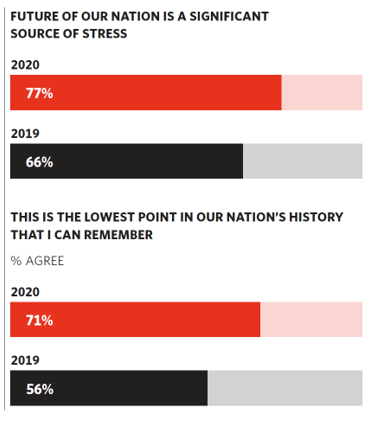 Furthermore, seven in 10 U.S. adults believe that “now” is the lowest point in the nation’s history that they can remember.
Furthermore, seven in 10 U.S. adults believe that “now” is the lowest point in the nation’s history that they can remember.
“We are facing a national mental health crisis that could yield serious health and social consequences for years to come,” APA introduces their latest read into stressed-out America.
Two in three people in the U.S. say that the current state of uncertainty in the country causes stress. Three in five people note the number of issues America faces is overwhelming to them. These challenges include but are not limited to health care, mass shootings, climate change and global warming, rise in suicide rates, immigration, sexual harassment/assault reports in the news, and the opioid/heroin epidemic each garnering at least one-half of peoples’ attention.
In a way, stress “democratizes” Americans, with a small “d.” Mental health impacts from the coronavirus pandemic, subsequent economic recession, social and civil unrest, and disrupted everyday life-flows contribute to our collective mental un-wellness.
Physical/emotional tolls include tension in the body, “snapping: or getting angry very quickly, unexpected mood swings, or screaming/yelling at a loved one.
Of course, stress doesn’t impact all people in the U.S. uniformly, with Gen Z adults feeling particularly acute emotional tolls in 2020. Eight in ten Gen Z adults said the future of the U.S. is a significant source of stress in their lives. These are people between ages 18 to 23 years old, dealing with interrupted school, job prospects, and growing student debt with uncertain futures as young people bridging teenage to adult worlds. Thus, 2 in 3 Gen Z adults in college say the COVID-19 pandemic makes planning for their futures feel impossible.
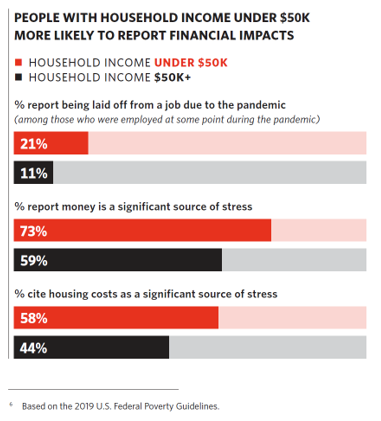 APA found generational differences in Americans’ perceptions of their mental health comparing this year with last year. One-third of the Gen Z adults say their mental health is worse now than this time in 2019, with roughly one in 5 Millennials and Gen X folks finding worse mental health in 2020, and one in ten Boomers or older adults feeling less emotionally well in the pandemic compared with last year.
APA found generational differences in Americans’ perceptions of their mental health comparing this year with last year. One-third of the Gen Z adults say their mental health is worse now than this time in 2019, with roughly one in 5 Millennials and Gen X folks finding worse mental health in 2020, and one in ten Boomers or older adults feeling less emotionally well in the pandemic compared with last year.
Parents, too, felt significant stress related to children’s school and their kids’ future plans. As childcare was discontinued during the pandemic shutdown, APA explains in the report, the home became the center of work, learning, entertainment, exercise, and health care. For parents of school-aged children, and particularly working mothers, the pressures felt from the start of the pandemic have been acute.
Parents also expect significant stress in the months ahead as the pandemic extends into the new year, 2021. The school year 2019-2020 was extremely stressful for two in three parents of older teens age 15-17, disrupting plans for both parents and children.
Stress from work and financial disruptions impacted people with lower incomes more, shown in the second graphic. With six in 10 adults saying stress due to the economic downturn has been a significant source of stress, that was nearly 50% greater in 2020’s pandemic era compared with 2019, approaching the high level of stress felt during the 2008 Great Recession.
Two-thirds of working adults employed during the pandemic say their jobs have been negatively impacted by the public health crisis. Most common impacts were having hours cut, balancing household responsibilities during work time, being laid off, or experiencing decreased productivity.
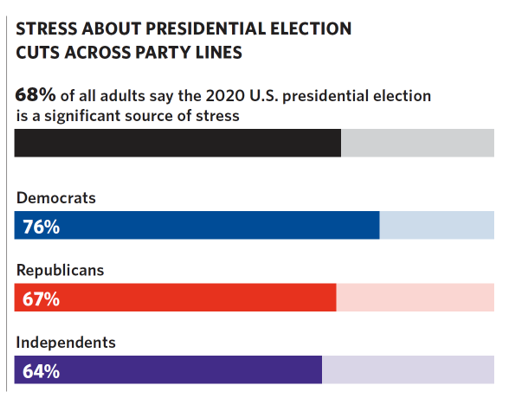 People employed during the pandemic earning under $50,000 a year were more likely to report money as a significant source of stress than households earning over $50K annually, with rates of 73% versus 59% respectively. Housing costs, too, were more a significant source of stress for households earning under $50K compared with those garnering over $50K a year in income.
People employed during the pandemic earning under $50,000 a year were more likely to report money as a significant source of stress than households earning over $50K annually, with rates of 73% versus 59% respectively. Housing costs, too, were more a significant source of stress for households earning under $50K compared with those garnering over $50K a year in income.
Part of the “democratization” of stress in America is that political stress in the 2020 Presidential election impacts Americans across political party ID:
Overall, 68% of Americans stress about the Presidential Election, compared with,
- 76% of Democrats
- 67% of Republicans, and
- 64% of Independents.
APA polled 3,049 U.S. adults age 18 and over in August 2020 for this survey.
For my previous coverage of Stress in America 2020 studies published earlier this year, see:
Stressed Out by COVID and Civil Unrest, Stress in America 2020, Volume 1 – June 2020
Stressed in America – COVID-19 Takes Toll on Finances, Education. Basic Needs, and Parenting – May 2020
Two in Three Americans Cite the U.S. Presidential Election is a Significant Sources of Stress, Even More than in the 2016 Race– October 2020
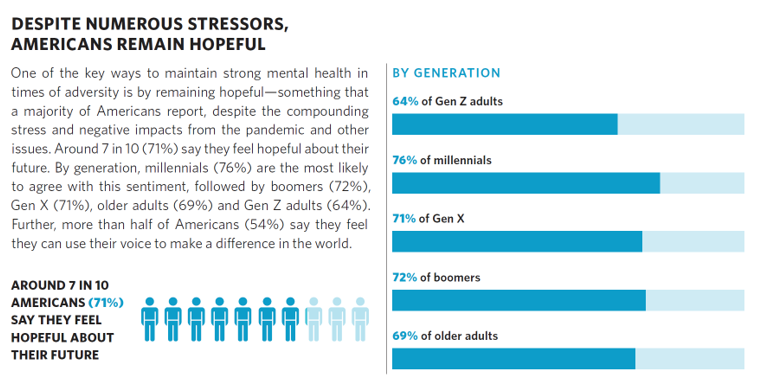 Health Populi’s Hot Points: With all this stress on Americans’ minds, there is some good news in the APA’s Stress in America findings: that some 7 in 10 Americans remain hopeful at this time of adversity, shown in this last chart.
Health Populi’s Hot Points: With all this stress on Americans’ minds, there is some good news in the APA’s Stress in America findings: that some 7 in 10 Americans remain hopeful at this time of adversity, shown in this last chart.
This varies from a low of 64% of Gen Z adults (discussed earlier as the most-stressed age group in 2020) to high-hope Millennials at 76%.
This data point illustrates hopefulness in America: the potential to come through the coronavirus crisis with collective optimism among most Americans.
While “most” is not “all,” there is a viral nature to our behavior statistically demonstrated in the work of Christakis and Fowler in Connected. When you choose to adopt a health/y behavior, your choice impacts your social network (say, me) and my social networks, and your own networks’ social networks. This creates a virtuous cycle.
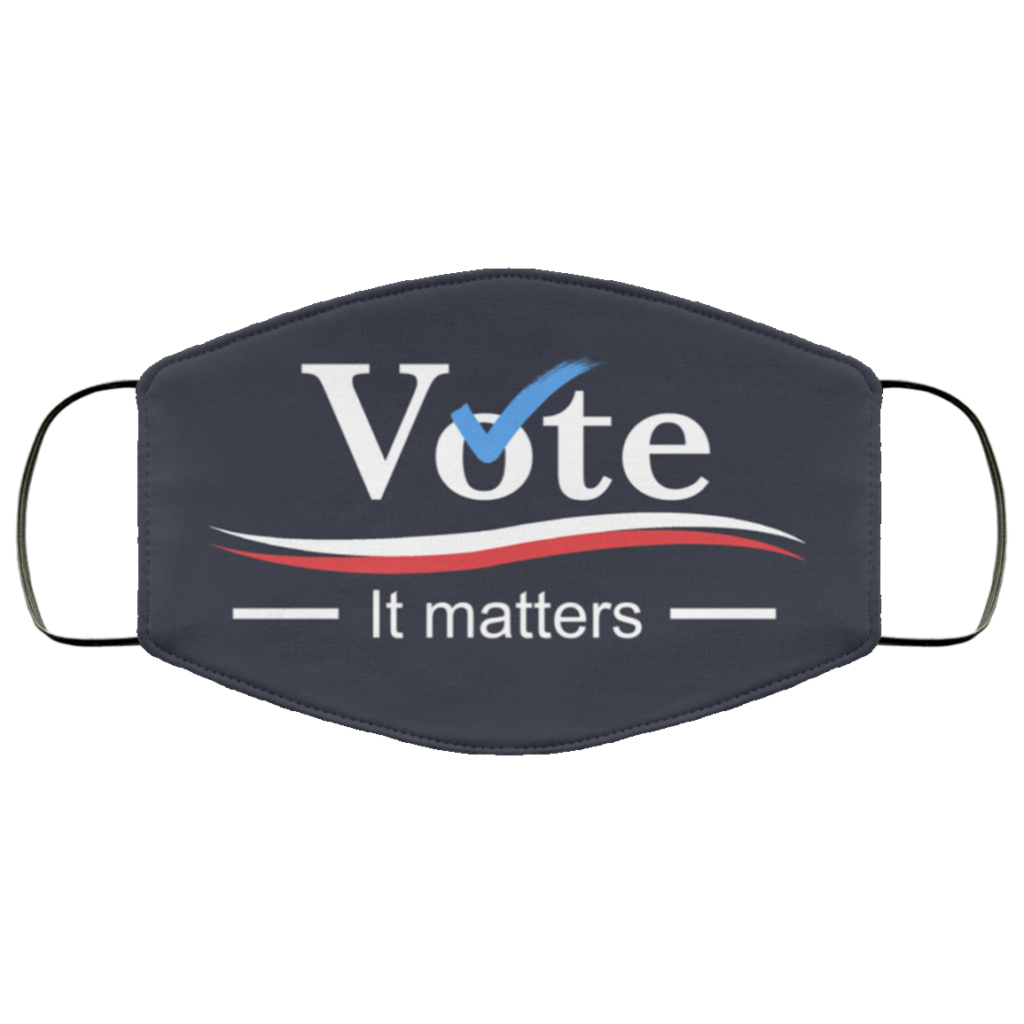 I finalized the title of my recently published book, Health Citizenship, with the tagline: “How a virus opened hearts and minds.” This optimism appears, perhaps surprisingly, at this difficult time in the APA study. Health citizenship in America rests upon four pillars, I believe: health care access for all; digital privacy to bolster the third pillar, trust — in science and in each other. And finally, a fourth pillar: a new social contract for health care in America rooted in love. In the pandemic, that love translates, in part, as you wear the mask for me and me, for you.
I finalized the title of my recently published book, Health Citizenship, with the tagline: “How a virus opened hearts and minds.” This optimism appears, perhaps surprisingly, at this difficult time in the APA study. Health citizenship in America rests upon four pillars, I believe: health care access for all; digital privacy to bolster the third pillar, trust — in science and in each other. And finally, a fourth pillar: a new social contract for health care in America rooted in love. In the pandemic, that love translates, in part, as you wear the mask for me and me, for you.
Yes indeed, we are stressed in America; but we remain hopeful for ourselves, our kids, our families, our economy, and our nation.
Sidebar: I am buoyed in the moment because I voted today with my mail-in vote, hand-carrying it into my county voter services office. Voting, too, is part of being a solid health citizen.




 Thank you FeedSpot for
Thank you FeedSpot for